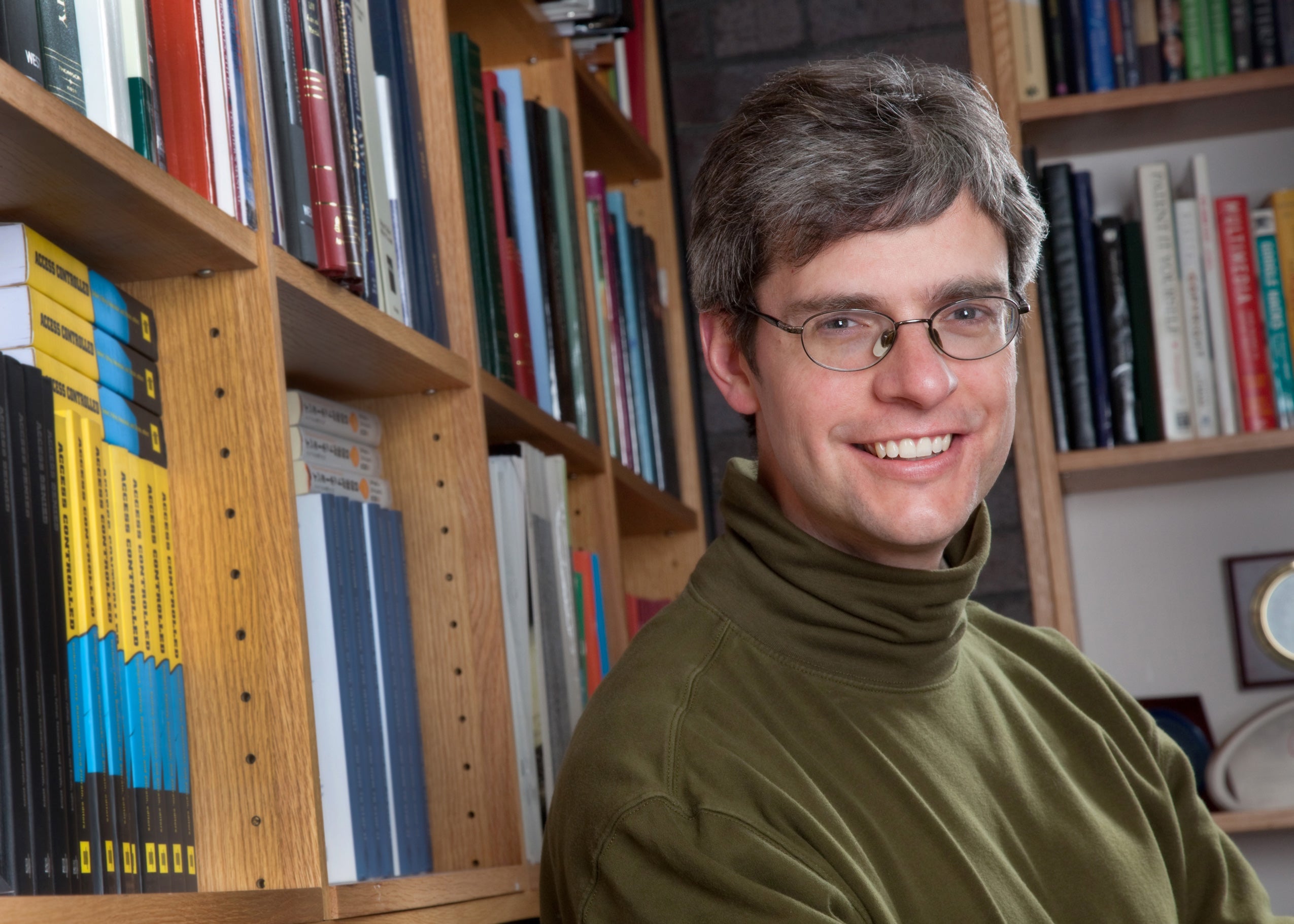Following a vote of the Harvard Law School faculty, D. James Greiner, a specialist in the application of modern quantitative thinking to legal questions, has been promoted from assistant professor to professor of law—a tenured faculty position.
Said HLS Dean Martha Minow: “As he pursues empirical study of vital questions about the benefit of access to legal representation and the operation of voting systems, Jim deploys state-of-the-art statistical analysis, time-intensive methods, and critical thinking. His superb commitment to ensuring that the best empirical evidence guides the design and operation of legal systems is matched only by his devotion to teaching. What a terrific colleague and scholar he is!”
Greiner, who joined the HLS faculty as an assistant professor in 2007, teaches courses on civil procedure, expert witnesses, and voting regulation. His research interests include election law with an emphasis on redistricting, causal inference, ecological inference, employment discrimination and quantitative legal empirics. He specializes in mounting complex field operations that generate information about how law works, including randomized experiments to assess the effectiveness of alternative dispute resolution and legal aid programs.
“I’m honored to become a permanent part of such a distinguished institution, and I’m grateful to the faculty for showing confidence in me,” Greiner said. “The Law School has been a wonderfully supportive place to build my scholarship and teaching.”
Prior to his academic career, Greiner practiced law for six years. He served as a trial attorney for the U.S. Department of Justice’s Federal Programs Branch, where he worked on employment discrimination class actions, cases involving the use of sampling in the Decennial Census and structural injunction matters. He later moved into private practice as an associate at Jenner & Block, where he litigated cases involving federal and state redistricting, government contracts and telecommunications law. Greiner also clerked for the Hon. Patrick E. Higginbotham of the U.S. Court of Appeals, Fifth Circuit, from 1995 to 1996.
Recent examples of Greiner’s scholarship include the working paper “How Effective Are Limited Legal Assistance Programs? A Randomized Experiment in a Massachusetts Housing Court,” the forthcoming “The Limits of Unbundled Legal Assistance: A Randomized Study in a Massachusetts District Court and Prospects for the Future” (Harvard Law Review) and “Randomized Evaluation in Legal Assistance: What Difference Does Representation (Offer and Actual Use) Make?” (Yale Law Journal). He has also published pieces in the Journal of the Royal Statistical Society, the Annals of Applied Statistics, the Indiana Law Review, The Quarterly Journal of Political Science, and other economic journals and publications. His work has been discussed in numerous national and international blogs, including some hosted by The New York Times, The Wall Street Journal, and The Washington Post.
In 2011, Greiner was awarded the Harvard Program on Negotiation’s Generation Research Grant to support a randomized evaluation of the U.S. District Court for the District of Nevada’s Inmate Early Mediation Program. In 2008, he cofounded the Boston Area Colleges Election Project, with grant support from the Provost Fund for Interfaculty Cooperation and local sponsors.
He is a member of the American Bar Foundation’s Access to Justice Informal Planning Group, which charts research and advocacy to improve access to justice, and of the Stanford Center on the Legal Profession’s Access to Justice Consortium, which promotes research and law school initiatives on access to justice.
Greiner received his B.A. in Government with high honors in 1991 from the University of Virginia. He earned his J.D. magna cum laude from the University of Michigan in 1995, where he was an articles editor for the Michigan Law Review, a co-winner of the Henry M. Campbell Moot Court, a Clarence Darrow Scholar and a Bates Memorial Scholar (awarded to the top three all-around graduates).
Greiner went on to earn a Ph.D. in Statistics at Harvard University in 2007, where he received a Chair’s Award and completed his dissertation, “Contributions to Law and Empirical Methods
